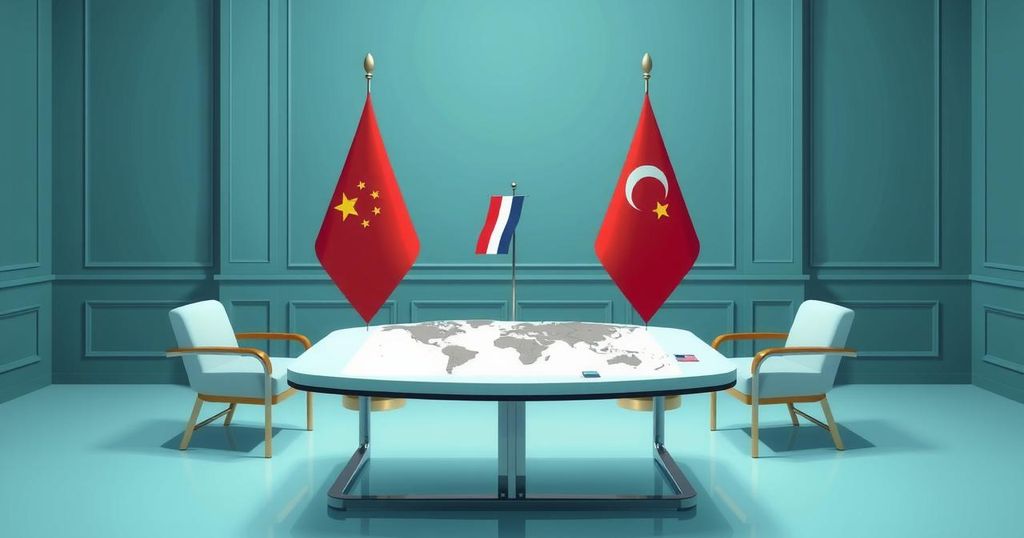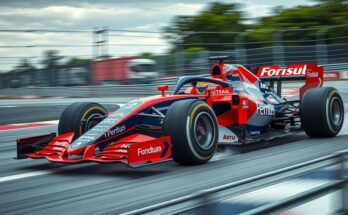Indian Prime Minister Narendra Modi’s upcoming visit to Washington with President Donald Trump will focus on key topics including trade, tariffs, and visas. Their strong rapport, developed over years, will guide discussions as they navigate demands and expectations. Key issues include India’s willingness to reduce tariffs, address undocumented immigration, and enhance energy investments, reflecting a desire to strengthen the US-India partnership amidst global pressures.
During Indian Prime Minister Narendra Modi’s upcoming visit to Washington for discussions with President Donald Trump, trade, tariffs, and visas will be the primary subjects addressed. Their personal relationship has strengthened since their initial meeting in 2017, reflecting shared views on global matters and a mutual aim to counter China. This evolving partnership between the US and India will see Modi engaging with members of Trump’s cabinet and business leaders during his visit.
While the tone of their discussions may be cordial, the relationship’s transactional aspects will become evident, as both leaders will likely present various demands. Recognizing this, Delhi has proactively signaled its willingness to lower tariffs, expedite the return of undocumented Indian immigrants, and purchase American oil to ease tensions with the Trump administration. Recent tariffs have already been reduced, and Delhi has facilitated the return of 104 undocumented Indians as part of this diplomatic effort.
However, Trump may insist on additional tariff reductions to address the US trade deficit with India, which has been significant in recent years. In turn, Modi could leverage these talks to initiate bilateral discussions aimed at forming an economic partnership designed to mitigate tariff barriers on both sides. Both leaders appear keen to enhance trade relations, balancing their respective national interests.
Topics such as undocumented Indian immigrants will also arise, with Trump likely requesting more cooperation from Modi on this sensitive issue, given estimates suggesting over 700,000 undocumented Indians reside in the US. Meanwhile, the energy conversation may entail Modi advocating for increased investment in nuclear energy, signalling a shift towards cleaner energy sources and reinforcing India’s commitment to renewable energy targets by 2030.
Discussions on technology cooperation are expected to emerge, particularly focusing on the Initiative on Critical and Emerging Technologies (iCET), which could serve as the backbone of US-India collaboration. Modi will likely seek assurances concerning continued US support for the H-1B visa program that has benefited many Indian tech professionals, despite criticism.
Additionally, geopolitical considerations will be at the forefront, with Modi addressing the US stance on Iran and Kabul, following US sanctions and regional dynamics. The conversation may extend to the Ukraine and Gaza conflicts, exploring India’s potential role as a mediator, reinforcing its unique relationships with both Russia and Israel.
Throughout these discussions, both leaders are expected to maintain an optimistic outlook. Notably, Trump supports the Indo-Pacific Quad, a security dialogue involving the US, India, Japan, and Australia aimed at addressing regional challenges posed by China. Modi’s invitation for Trump to attend the Quad meeting in India underscores the importance of this bilateral partnership, which extends beyond transactional interactions.
In conclusion, Prime Minister Narendra Modi’s visit to Washington signifies an important moment for US-India relations, with an emphasis on trade, tariffs, and visas dominating discussions. Both leaders will navigate a complex web of expectations and demands while striving to uphold a positive tone. Topics will range from economic partnerships and energy investments to geopolitical considerations, particularly regarding Iran and ongoing global conflicts. This visit highlights the multifaceted nature of the Indo-US relationship, indicating both leaders’ desire to foster a strategic alliance that transcends mere transactional interactions.
Original Source: www.bbc.com




